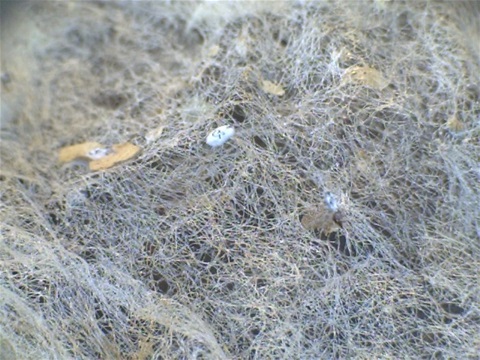Microplastic particles in compost
A study by Nicolas Weithmann and colleagues from the University of Bayreuth, Germany investigated the potential of organic fertilizers from biowaste fermentation and composting as an entry path for microplastic particles into the environment.
All samples from plants converting biowaste to fertiliser. (composts, digestates, and percolate-leachates from digestion, which is used as liquid fertilizer) contained plastic particles, but amounts differed significantly with substrate pre-treatment, plant, and waste (for example, household versus commerce)
Composters will be concerned to know that 20-24 pieces of microplastics per kg of dry weight were found in the compost from a composting plant processing biowaste from households with green clippings from the area.
However, the quantity of microplastic present was small when compared with compost produced from supermarket waste which contained 895 pieces >1 mm per kg dry weight.
While waste from the public using the green waste collection system is much more likely to be contaminated than home composted material it does indicate an area of potential concern for those buying compost and for home composters. The advice is that it is better to use loose tea or plastic free teabags. Best advice for the present where plastic teabags cannot be avaoided can be composted despite the fact that the remains of the bag may be added to the soil in the finished compost ( Composting Teabags).
The phot shows the magnified remains of a plastic teabag after composting.
Read more
Rachel Ehrenberg (April 5, 2018). “Microplastics may enter freshwater and soil via compost.” Science News
Reference
Weithmann, N., et al. (2018). “Organic fertilizer as a vehicle for the entry of microplastic into the environment.” Science Advances (published online April 4, 2018).
Further information on plastic in tea bags and composting is available at: www.carryoncomposting.com

Latest comments
Do you have any data on ' application ' of Aerated Vermi Compost Tea to Mangoes and benneficial outcomes .
Very informative site. Having been away for 5 weeks and returning to evidence of rats under and around the compost bin, I can testify to lack of human activity allowing the rats to get comfortable.
can i use dog manure in compost and mulching leaves?
What is the C and N ratio for coffee chaff?